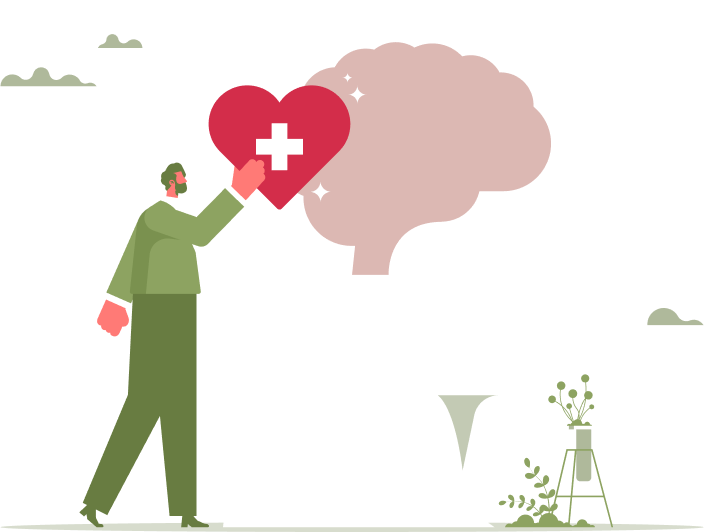How therapy can help seniors cope with loneliness and loss

Understanding Loneliness and Loss in Seniors
-
Chronic loneliness can have a significant impact on mental health, increasing the risk of depression, anxiety, and other mental health problems.
-
Grief and loss are common experiences for seniors, and can be triggered by the loss of a loved one, retirement, or other significant life changes.
-
Seniors may struggle to cope with grief and loss due to physical health changes, social isolation, and lack of emotional support.
The Effects of Chronic Loneliness on Mental Health
-
Chronic loneliness can lead to decreased motivation, sleep disturbances, and increased risk of mental health problems.
-
Seniors who experience chronic loneliness may also experience physical health problems, such as increased blood pressure and cardiovascular disease.
-
Mental health support is essential for seniors who are struggling with chronic loneliness.
Definition of Grief and Loss in Later Life
-
Grief is the emotional reaction to a loss or significant change, and can be a normal and necessary part of the healing process.
-
Loss can take many forms, including the death of a loved one, retirement, or physical health changes.
-
Seniors may experience grief and loss in different ways, and may need support and guidance to navigate these emotions.
Coping with Grief and Loss
-
Grief counseling can provide a safe and supportive environment for seniors to express their emotions and develop coping strategies.
-
Support groups can offer a sense of community and connection for seniors who are struggling with grief and loss.
-
Professional support is essential for seniors who are struggling to cope with grief and loss.
Stages of Grief
-
The grieving process can involve several stages, including denial, anger, bargaining, depression, and acceptance.
-
Seniors may experience these stages in different ways, and may need support and guidance to navigate the grieving process.
-
Grief counseling can help seniors understand and work through these stages.
The Role of Technology
-
Technology can play an important role in addressing loneliness and isolation in seniors, such as video-calling platforms and online support groups.
-
Seniors can benefit from using technology to stay connected with family and friends, and to access support services.
-
Professional support is essential for seniors who are struggling to use technology to address loneliness.
How Therapy Can Help Older Adults Face Loneliness and the Loss of Loved Ones
Aging is a journey filled with profound transitions—loss of loved ones, physical health challenges, and changes in social roles. These experiences can lead to feelings of sadness, isolation, and uncertainty. Therapy offers a vital refuge, providing older adults with the tools to navigate these challenges, rediscover meaning, and rebuild their sense of well-being.
Therapy: A Refuge in Old Age
The later years of life often require adapting to new routines, physical limitations, and shifting relationships. Therapy becomes a sanctuary where older adults can process these changes, fostering acceptance and helping them uncover new ways to find joy and purpose.
Therapy isn’t just about addressing mental health concerns—it’s about enhancing the overall quality of life. By focusing on emotional well-being, therapy can also improve physical health, as unresolved emotional pain can manifest in physical symptoms such as fatigue, weakened immunity, and chronic illness.
Grief and Honoring Loved Ones
The loss of loved ones leaves a deep emotional imprint, often accompanied by feelings of grief that may persist over time. Therapy provides a compassionate space for older adults to process these emotions, understand the grieving process, and discover ways to honor those they’ve lost.
Understanding Grief
Grief is a multifaceted journey that often includes stages such as denial, anger, bargaining, depression, and acceptance. While these stages don’t follow a linear path, therapy helps individuals navigate them with guidance and patience.
Finding Meaning in Memories
Through therapy, older adults can explore rituals to celebrate their loved ones’ lives, such as sharing stories, maintaining traditions, or creating memory albums. These practices help integrate the presence of lost loved ones into daily life in a meaningful way.
How Therapy Helps Seniors Cope with Life Transitions
Therapy offers a variety of tools and techniques to help older adults address the unique challenges of aging. Therapy can empower seniors to build resilience and maintain a sense of control over their lives. Here are some key ways therapy supports seniors:
1. Developing Healthy Coping Strategies
Therapists help seniors identify and implement coping mechanisms that address feelings of loneliness, anxiety, or frustration. These strategies may include mindfulness practices, relaxation techniques, or journaling to process emotions constructively.
2. Encouraging Social Connection
Isolation is a significant challenge for many older adults. Therapy can guide seniors in rebuilding social networks, whether by reconnecting with old friends, joining community groups, or even exploring new hobbies. For those hesitant about in-person connections, therapists may introduce digital tools that allow for virtual socializing.
3. Managing Health-Related Stress
Chronic illness, mobility issues, and other health concerns often weigh heavily on older adults. Therapy provides a safe space to discuss these struggles, offering stress management techniques and a chance to reframe their perspective on health challenges.
4. Promoting Self-Compassion
Aging often brings feelings of guilt or regret about past decisions or unmet goals. Therapy fosters self-compassion, helping seniors let go of perfectionism and embrace their lives as they are. This shift in mindset can lead to a greater sense of peace and contentment.
5. Building Resilience
Life transitions, such as moving to assisted living or retiring, can feel overwhelming. Therapists work with seniors to develop resilience by focusing on their strengths, exploring personal values, and setting small, achievable goals.
6. Addressing Intergenerational Relationships
Family dynamics often evolve as people age. Therapy can mediate and improve intergenerational communication, helping seniors navigate relationships with adult children or grandchildren while maintaining their sense of independence.
7. Navigating Existential Questions
As older adults reflect on their lives, existential questions about meaning and mortality often arise. Therapy provides a space to explore these thoughts, offering tools to create a sense of purpose and acceptance during this stage of life.

Loneliness and Isolation
Loneliness is a significant emotional challenge for many older adults, often stemming from the loss of a partner, reduced mobility, or diminished social connections. Chronic loneliness doesn’t just affect mental health; it’s also linked to physical health issues like cardiovascular disease, weakened immunity, and cognitive decline.
Breaking the Cycle of Loneliness
Therapy helps older adults:
-
Identify Root Causes: Understanding the underlying factors of loneliness.
-
Rebuild Social Confidence: Developing skills to reconnect with others and form meaningful relationships.
-
Engage in Activities: Encouraging participation in hobbies, group events, or volunteer work that foster connection and purpose.
Through these steps, therapy enables older adults to regain a sense of belonging and break free from isolation.
The Interplay of Mental and Physical Health
The connection between mental and physical health becomes increasingly important with age. Emotional struggles such as chronic grief, loneliness, and stress can exacerbate health issues like high blood pressure, diabetes, and heart conditions. Therapy helps address these emotional challenges, which can lead to tangible improvements in physical health.

Therapy and Family Dynamics
Family members play a crucial role in the emotional and physical health of older adults. Therapy provides tools for family communication, strengthens bonds, and creates an environment of mutual understanding and support. Including family members in therapy sessions can help bridge generational gaps and foster deeper connections.
Coping with Aging and Rediscovering Joy
Aging often comes with physical limitations and a loss of independence, which can feel overwhelming. Therapy equips older adults with practical and emotional tools to adapt to these changes with resilience.
Focus on What Remains
Rather than dwelling on what’s been lost, therapy shifts the perspective to embrace what still brings joy—be it new hobbies, spending time with loved ones, or savoring small, everyday pleasures.
Rediscovering Purpose
Therapy helps older adults redefine their roles and explore new ways to find purpose, such as mentoring younger generations, volunteering, or nurturing creative outlets.
Enhancing Quality of Life Through Therapy
Therapy is more than just a treatment; it’s a lifeline for older adults facing the challenges of aging, loneliness, and loss. By addressing both mental and physical health, therapy improves emotional resilience and fosters better physical outcomes.
Empowering Older Adults
-
Emotional Well-Being: Therapy provides a safe, nonjudgmental space to process emotions and fears.
-
Strengthened Relationships: It nurtures stronger family bonds and meaningful connections.
-
Improved Health: By reducing stress and emotional burdens, therapy supports better physical health and vitality.
In this phase of life, therapy offers older adults the opportunity to feel understood, supported, and accompanied. With the right tools and guidance, they can embrace life fully, honoring their past while forging a meaningful future.
Aging is not only about coping with changes—it's about embracing the opportunity to grow in wisdom, strengthen connections, and rediscover what makes life truly fulfilling. Therapy serves as a powerful companion on this journey, empowering older adults to navigate challenges with grace and resilience while unlocking new sources of joy and purpose. By fostering emotional well-being, strengthening relationships, and enhancing overall quality of life, therapy helps individuals honor their experiences and create a vibrant, meaningful future that celebrates every stage of life. Aging, after all, is not an ending—it's an evolution, and every day is an opportunity to rediscover the beauty of living
David Greene
Licensed psychologist
Tags:





